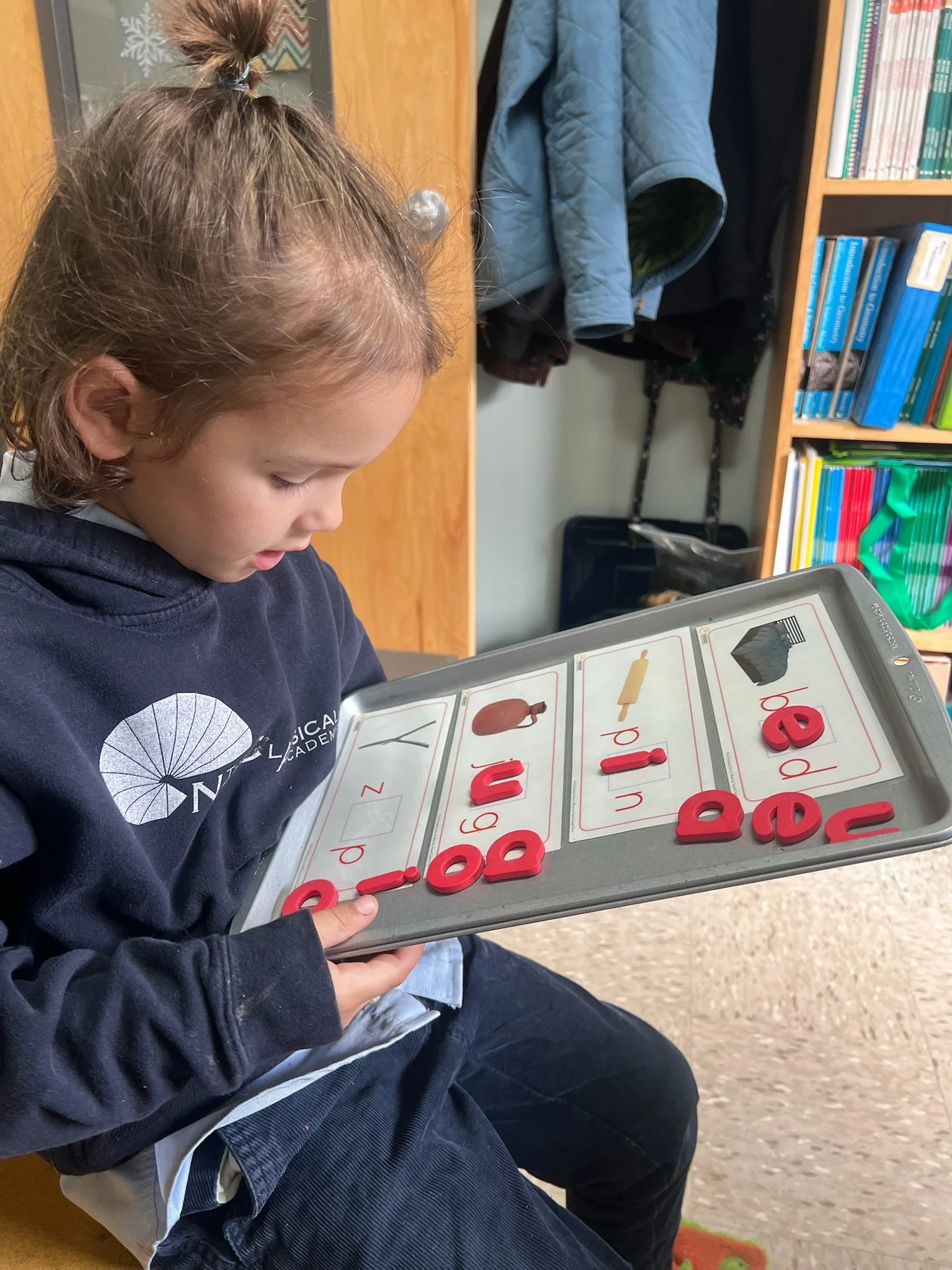Time Management
This is part 4 of a 5-part series on what it means to be a Classical School. If you missed the two posts of the series, you can click on the link below to read them.
Part 1.
What Does it Mean to be a Classical School?
Part 2.
The Intentionally Small School: Mixed Age Classes and Individualized Academics
Part 3.
Our Daily Structure: Morning Block and Afternoon Block
Part 4.
Extended Unstructured Outside Time
Part 5.
Time Management
Part 5:
Building Time Management
Time management is one of the most important skills students can develop. At TNCA, it’s about helping students take pride in their work and develop the internal motivation to succeed. From the earliest years, our goal is to guide children toward habits that foster independence, confidence, and a genuine sense of accomplishment.
In the lower school, this begins with small, age-appropriate steps. First- and second-graders are expected to complete their work by the end of each subject period. They begin to experience the satisfaction of doing their best work within the time they are given. If a student finishes too quickly or takes too long, teachers adjust expectations to make sure the work is both appropriately challenging and rewarding. This way, students don’t just complete tasks—they begin to feel proud of what they can achieve.
By third and fourth grade, students begin managing a balance of daily and weekly assignments. This shift can be challenging in a way that academics alone are not; it inspires a new level of ownership, helps them discover how good it feels to stay on top of their responsibilities and to see the results of their own organization and initiative.
In middle school, the challenges grow deeper. Students are expected to manage all of their assignments on a weekly basis, which requires discipline, organization, and self-responsibility. While this can feel daunting at first, it quickly becomes one of the most meaningful lessons of their time at TNCA. They learn that planning, organizing, and follow-through aren’t just academic skills—they are life skills. As students rise to meet these expectations, they begin to trust themselves, take pride in their ability to handle responsibility, and recognize that their motivation comes from within.
Study Hall plays an essential role in this growth. It isn’t simply a time to get work done—it’s a space where students learn how to ask for help with confidence, how to use smaller pockets of time productively, and what to do while waiting for teacher guidance. By seventh grade, they extend this independence into their home routines, completing work without direct teacher oversight. This fosters resilience and reinforces the idea that they are capable of guiding their own progress.
Step by step, from the early grades through middle school, students at TNCA develop habits of time management that are rooted in pride, motivation, and responsibility. By the time they move on to high school, they aren’t just academically prepared—they are also equipped with a deep sense of confidence in their ability to manage increasing demands.


